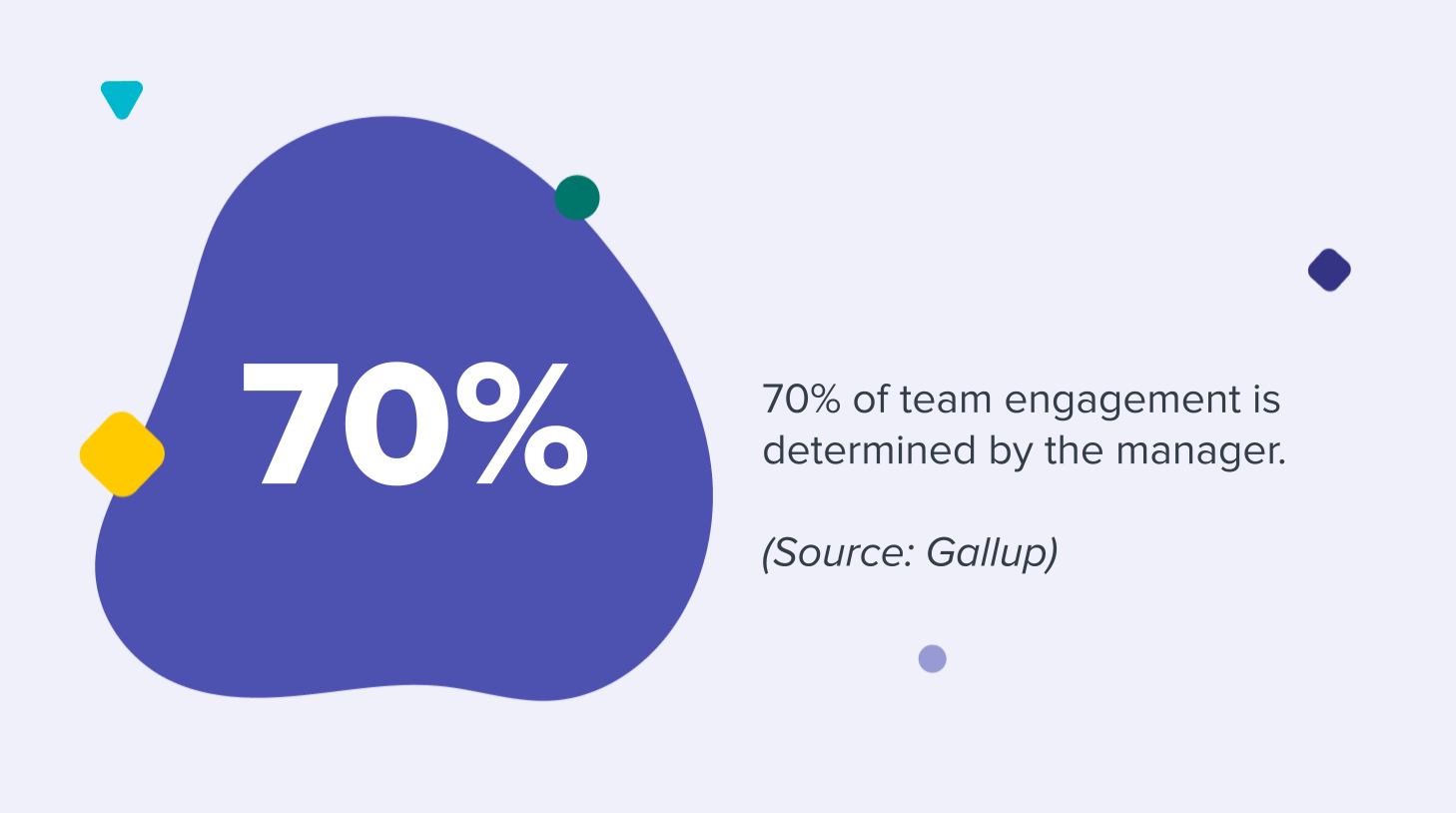Why middle managers are so unhappy – and what you can do
With 70% of team engagement linked to managerial influence, supporting middle managers has a clear correlation with improved business outcomes and decreased risk of disengagement and turnover. The CEO of a talent intelligence solution shares three actionable tips on how you can help your managers shine in their roles.

Middle managers might be the busiest people in your organization. They oversee other employees, negotiate with peers, and manage up to executives – all while juggling individual responsibilities. They’re crucial to executing organizational goals but often lack the time, resources, or authority to do so effectively.
Instead of asking why middle managers are so unhappy, perhaps we should wonder why any are happy.
As leaders and organizations, we can’t ignore this problem.
According to Gallup, managers are the biggest single factor in employee engagement – 70% of team engagement is determined by the manager. As our middle managers go, so do our businesses.
And yet, in 2023, managers were rewarded with smaller budgets and more work – and they are the top target for layoffs.
Given these competing pressures, how can we give middle managers the support they need so they can flourish instead of fueling discontent and disengagement?
Here are three suggestions.
Contents
1. Promote a culture of psychological safety
Middle managers face the unique challenge of managing not only their direct reports but also their superiors and peers. Conflict and stress are inevitable when managing these relationships. Add in the murkiness of office politics, and it’s easy to see why middle managers get worn out by navigating interpersonal relationships.
Related: How to ensure psychological safety at work
The antidote to burnout here is to actively cultivate a greater sense of psychological safety in your culture.
You’ll have to be patient – psychological safety accumulates over time. It’s the result of many, many small interactions where a person actively views a situation from somebody else’s perspective.
They don’t immediately judge something as right or wrong. Rather, they explore other perspectives and ideas, and they learn from the interaction. The other party feels seen, heard, and welcomed.
The reason these exchanges matter – sharing your thinking while learning about other people’s thinking – is because psychological safety is dependent on the people involved. Their thinking, their personality, their comfort level all matter.
For example, I’m an analytical thinker who loves to tear into data and explore what it means. That can create psychological safety for me and like-minded people. But for people who don’t understand the data or feel personally attacked by such an examination That approach can make them quickly feel confused and overwhelmed.
Imagine a workplace where middle managers feel they can be honest and vulnerable about their thinking and perspectives with their bosses. In turn, they’re also curious about their colleagues’ thinking, and they proactively inquire about their direct reports’ insights.
Suddenly, there’s less confusion and miscommunication. Even the most difficult conversations become easier because both parties start with some level of trust.
2. Coach middle managers for the role
Many people enter management because they’re top performers who get promoted, often without specific training for their new role. Unfortunately, RedThread Research found that managers received less support in 2023 than the year before.
Unsurprisingly, manager effectiveness plummeted.
Middle managers need executive-level support. That means recognizing the unique stresses they’re under and how to offset them.
Related: Employee development and the Peter Principle: Why your managers keep messing up
Start with robust training and coaching before, during, and after their rise through the ranks. You can help middle managers better understand their thinking through the Herrmann Brain Dominance Instrument® (HBDI®) and other assessments.
When they understand how they prefer to think in the workplace, they can be more deliberate and effective in their communication — and develop deeper, more collaborative relationships.
Consider training middle managers in conflict resolution so they’re better prepared to handle difficult situations while managing up, down, and across.
By helping middle managers view workplace conflict as an opportunity for collaboration rather than winner-take-all, they’ll feel less defensive and more engaged.
3. Reexamine their workloads
Even when companies recognize middle managers’ importance to company culture and strategic execution, the result is often more work – without an increase in resources. This expanded scope of work can be overwhelming, leaving little time for self-care and personal development.
Look at your middle managers’ individual responsibilities. Can they reasonably complete their individual work and elevate their teams?
Freeing up your overworked middle managers isn’t easy. That’s where culture comes back into play. Do your middle managers feel they can ask for help with their workloads, or do they fear being labeled as incompetent or lazy? HR leaders need to help middle managers see that speaking up won’t be penalized.
Work with executives to reprioritize middle managers’ individual responsibilities. Some top performers might be better off as more of an individual contributor. Others will need support for redistributing their work down to their reports, across to other teams, or both.
Organizations that train, support, and elevate their middle managers will improve productivity, retention, engagement, and business results. Those who don’t will keep wondering why their managers are so unhappy – and why turnover and brain drain are a constant problem.
Karim Nehdi is CEO at Herrmann, which has helped people at the world’s best-performing organizations bring their Whole Brain® to work for more than 40 years with an evolving suite of assessments, employee engagement, and talent intelligence solutions.
Frequently asked questions
- How do middle managers impact employee engagement?
- Middle managers are pivotal, influencing 70% of team engagement. Their interaction with employees directly affects organizational morale and productivity. Effective support and development for middle managers can significantly enhance employee engagement, contributing to a more motivated and committed workforce.
- Why is psychological safety important for middle managers?
- Psychological safety allows middle managers to navigate the complex web of relationships with superiors, peers, and direct reports without fear of negative consequences for speaking up. It encourages open dialogue, trust, and collaboration, crucial for innovation and effective problem-solving in a dynamic workplace environment.
- What challenges are middle managers facing today?
- In 2023, middle managers faced diminishing budgets and increased workloads, even as they became primary targets for layoffs. These pressures make it challenging to effectively manage teams, contribute to strategic goals, and maintain personal well-being, highlighting the need for dedicated support and resources.
- How can organizations support their middle managers?
- Organizations can support middle managers by promoting a culture of psychological safety, providing role-specific coaching, and reassessing their workloads. Tailored training in areas like conflict resolution and strategic thinking can empower managers to lead more effectively and with greater confidence.
- What benefits can arise from better supporting middle managers?
- Supporting middle managers leads to improved productivity, higher employee retention, and better engagement across the organization. As middle managers play a crucial role in executing company strategies, investing in their development and well-being directly contributes to achieving business objectives and enhancing workplace culture.




